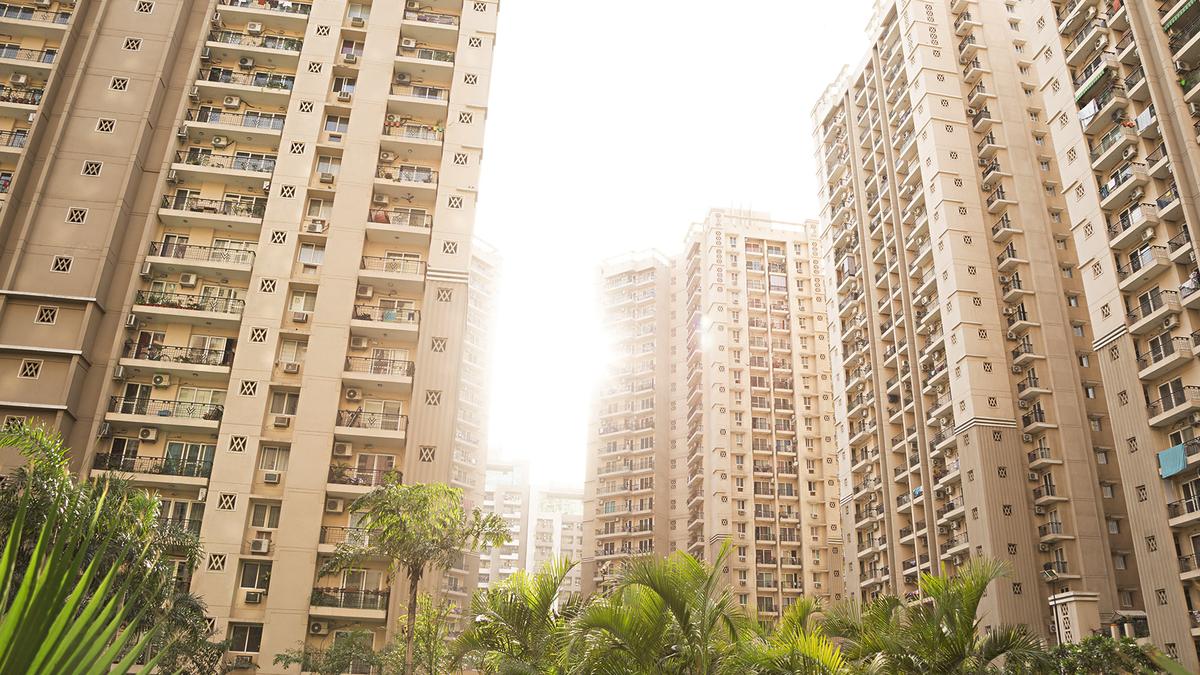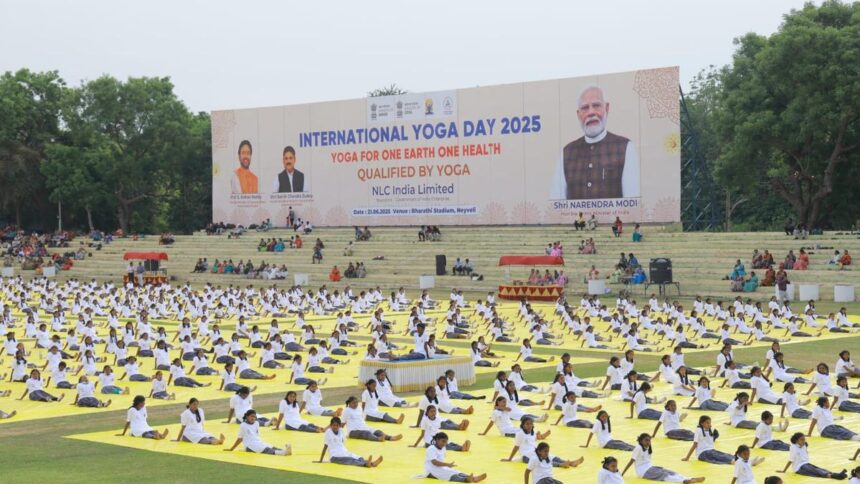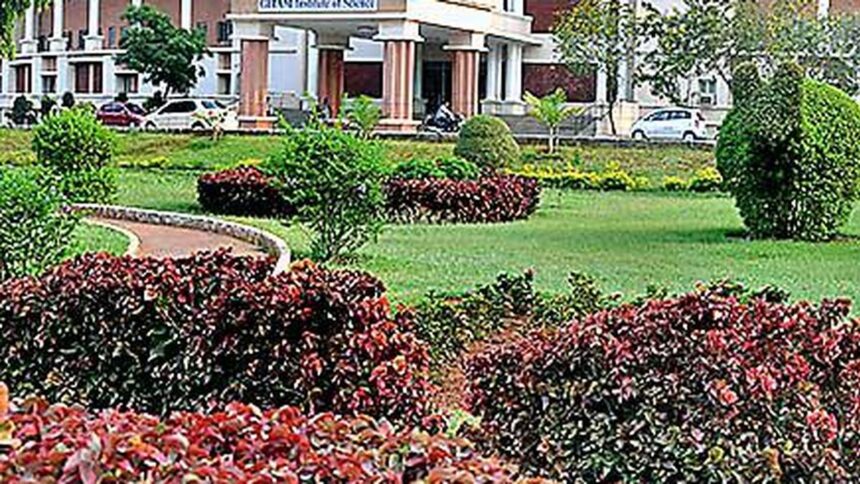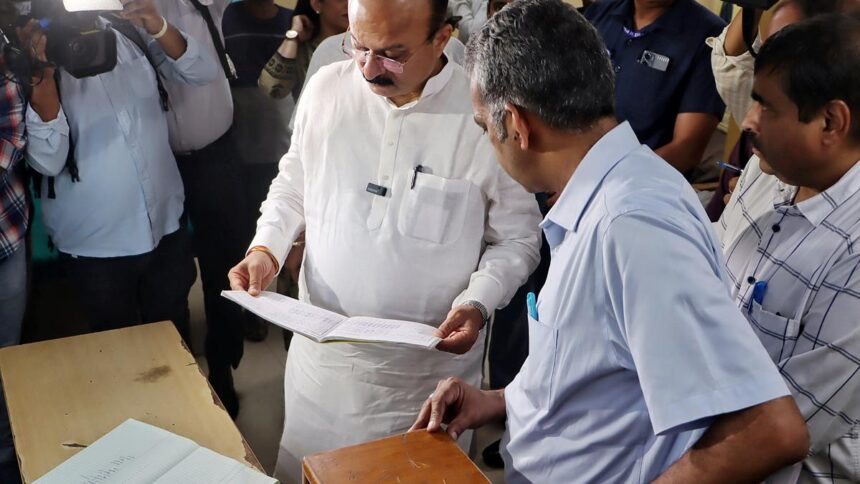A year since Tamil Nadu Apartment Ownership Rules 2024 prepared by the Housing and Urban Development Department came into effect, many apartment complexes in Chennai are yet to complete the process involving registration or renewal of association status.
Tamil Nadu Gazette dated September 24, 2024 requires owners of units in an apartment (starting from four-flat apartments to massive multiple-tower societies) to submit “Form-A” towards initial registration. It wants apartments with multiple blocks/towers in a compound to form a federation, and make bye-laws. Irrespective of the size the apartment, flat owners are required to appoint an auditor, submit audited accounts and balance sheets.
The Act provides an impetus to redevelopment projects, allowing owners to demolish a building if there is consensus from two-third of apartment owners. Likewise, it empowers the association to take action against residents erring to pay their maintenance bills. There are many features in favour of owners, but communities The Hindu Downtown spoke to note the process is being delayed due to challenges in the system. Some communities cite lack of awareness and many are said to be buying time.
Most resident associations were previously registered under Societies Act. Now they have to migrate to Tamil Nadu Apartment Act and begin by completing requirements in “Form A”.
Ragamalika Apartments in Mandaveli, a registered association, is finding it difficult to renew its registration as per the new Act. While the Act is clear, they are unsure where and how to process it and whether any acknowledgement will be provided. Apartments with less than 15 units say too much documentation discourages them from getting the association registered.
Real estate consultants say they are getting more inquiries from owners of buildings seeking to take up redevelopment in helping register the association, as also those looking for help in drafting bye-laws.
Ongoing projects
Six years ago, House of Hiranandani in Egattur formed a registered body involving nine towers. Now the gated community has 14 towers and more are under different stages of construction. The Act requires them to form a federation but as the developer is still working on projects, the current association has time in hand.
On the need for a federation, Raghavan Murti, an active member of the gated community, says, when the builder leaves the scene, there are roads, club house and other common amenities that have to be maintained. “We need a common body when dispute arises or to negotiate issues between associations, so a federation has to take shape sometime,” he says.
Validation for this gated community’s governance model
From the get-go, a gated community in Kolathur — Orchid Springs — has been following “a federal model of community governance”. That has made the gated community ready for the Tamil Nadu Apartment Ownership Rules 2024 nine years in advance. One of its requirements is that communities with multiple towers and blocks have an association for each of the blocks/towers and an overarching federation over them.
According to Ganapathy Suresh, founding president, Orchid Springs All Owners Association, the community has been following this model since residents started moving in to the community from 2015 onwards. This is indeed impressive when set against a backdrop where similar gated communities are still only chewing the cud over this stipulation, now almost a year old.
Under this model, each block has their own president, secretary and treasurer and maintenance fee is handled by the respective association.
An amount required for the upkeep of common amenities is paid to the Federation, which is like an apex body that is represented by three members from each block.

“All apartments must follow this seriously otherwise the State Government has the power to disqualify the old association or freeze accounts” Ganapathy Suresh founding president, Orchid Springs All Owners Association
Orchid Springs has more than 2000 flats spread across eight blocks.
“In such a decentralised approach, there is better accountability, transparency and a low probability of pilferage,” says Ganapathy, adding that every association keeps account of their money.
This system works well for tenants as well. “The flats in every block are of different sizes, ranging from 600 sq.ft. to 5,000 sq.ft, and the financial status of every resident would be different. So maintenance is charged based on the size of the flat and the amenity one is availing,” says Ganapathy. He had advocated a similar system at Gokulam Flats in Nolambur, which has 4,500 flats and 17 associations, before he moved into this community in Kolathur.
The decentralised approach also ensures there are more office bearers in the Federation who should have more say in matters concerning residents. He says the Act empowers owners to take legal action against residents erring in paying their maintenance bills.
The gated community is still working on completing the process towards registration that the Tamil Nadu Apartment Owners Act mandates. Three blocks have submitted Form A (an important step in the registration process).
Once all the eight blocks get their Form A done, the next step would be to apply for Form B.
“All apartments must follow this seriously otherwise the State Government has the power to disqualify the old association or freeze accounts,” says Ganapathy, adding that the new Act gives more power to residents associations.
Published – August 30, 2025 10:30 pm IST






















